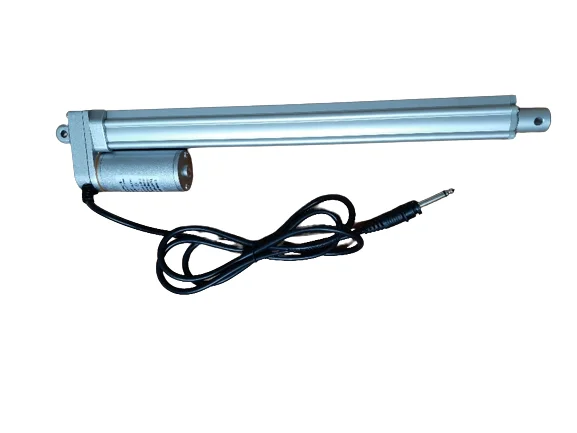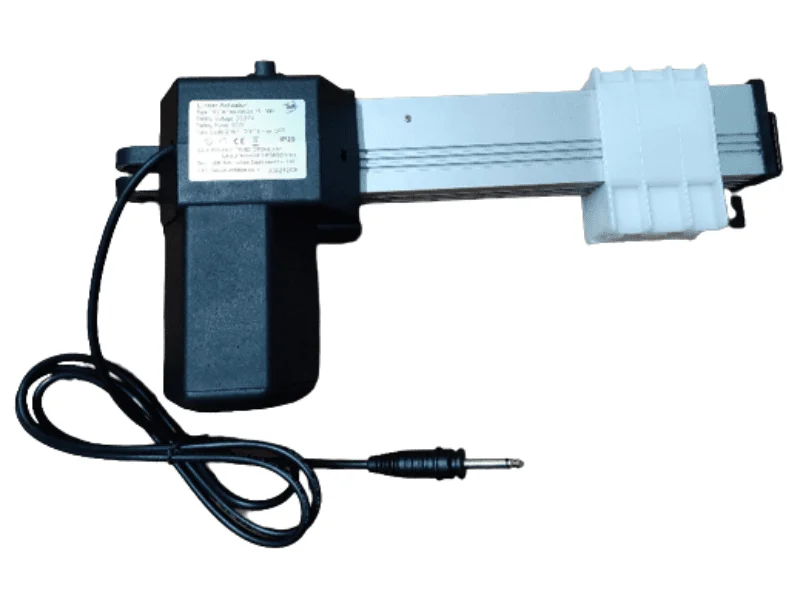Actuator motors play a critical role in the world of automation. They are devices that convert energy into motion and are fundamental components in various applications ranging from industrial machinery to everyday household items. Among the many types of actuators, electric actuators have gained prominence for their efficiency, precision, and versatility.
What is an Actuator?
An actuator is a mechanism that moves or controls a system or mechanism. Actuators are essential in a wide range of applications, including robotics, automotive systems, medical equipment, and industrial machinery. They can be powered by various energy sources, such as hydraulic fluid, pneumatic pressure, or electricity. Among these, electric actuators are particularly noteworthy for their precise control and ease of integration into electronic systems.
Types of Electric Actuators



Electric actuators come in various forms, each designed for specific applications. Some common types include:
- Linear Actuators: These actuators produce motion in a straight line and are commonly used in applications where linear movement is required, such as in hospital beds, furniture, and industrial machinery.
- Rotary Actuators: These actuators produce rotational motion and are used in applications such as valve control and robotic arms.
- Push-Pull Linear Actuators: These actuators can push and pull loads, making them suitable for applications like adjustable beds and recliners.
How Does a Linear Actuator Work?
A linear actuator converts rotational motion into linear motion. It typically consists of an electric motor, a screw mechanism, and a control unit. When the motor turns, it drives the screw mechanism, which in turn moves a rod or carriage in a straight line. The control unit regulates the movement, allowing for precise positioning and speed control.
Applications of Linear Actuator Motors
Linear actuators are incredibly versatile and are used in various industries. Some notable applications include:
- Healthcare: Linear actuators are used in hospital beds, dental chairs, and patient lifts. They provide smooth and precise movement, enhancing patient comfort and safety.
- Furniture: Electric actuators are used in adjustable beds, recliners, and other furniture to provide customizable positioning.
- Industrial Automation: Linear actuators are used in assembly lines, robotic systems, and other automated machinery to perform precise and repetitive tasks.
- Aerospace: High-speed linear actuators are used in aircraft control systems, providing reliable and precise movement.
- Automotive: Electric actuators are used in car seat adjustments, automatic doors, and other automotive applications for enhanced comfort and convenience.
Electric Actuator Manufacturers in India
India is home to several renowned electric actuator manufacturers. These companies provide a wide range of actuators for various applications, ensuring high-quality and reliable products. Some leading manufacturers include:
- Kathir Sudhir Automation Solutions: Specializing in innovative solutions for electric linear motion systems and actuators, this company provides complete machine assembly and control systems.
- Jiecang Linear Actuator India: Known for its high-quality linear actuators used in healthcare, industrial automation, and furniture applications.
- Festo India: A leading provider of automation technology, including electric actuators for various industries.
Linear Actuator Motors Selection
Selecting the right linear actuator involves considering several factors:
- Load Capacity: Determine the maximum load the actuator needs to move.
- Stroke Length: The distance the actuator needs to move.
- Speed: The speed at which the actuator needs to move the load.
- Environmental Conditions: Consider factors such as temperature, humidity, and exposure to dust or water. For harsh environments, IP67 linear actuators are recommended.
- Control Requirements: Determine whether the actuator needs to be integrated with other control systems, such as IoT devices or automated machinery.
Innovations and Future Trends
The field of electric actuators is continually evolving, with advancements in technology leading to more efficient, reliable, and versatile actuators. Some emerging trends include:
- IoT Integration: Actuators in IoT applications allow for remote monitoring and control, enhancing automation capabilities.
- Smart Actuators: Equipped with sensors and advanced control systems, these actuators provide real-time feedback and self-diagnostics.
- Energy Efficiency: Newer actuators are designed to consume less power while providing higher performance, making them suitable for sustainable and green technologies.
Conclusion: Actuator Motors
Electric actuators are indispensable components in modern automation systems. From healthcare and furniture to industrial and automotive applications, these devices provide precise and reliable movement. With continuous advancements in technology, electric actuators are set to become even more integral to various industries, driving innovation and efficiency. Whether you are in need of a linear actuator for a hospital bed, a push-pull actuator for industrial machinery, or an advanced actuator for IoT applications, understanding the different types, applications, and selection criteria will help you make the right choice for your needs.

I’m extremely impressed along with your writing abilities as neatly as with the structure on your weblog.